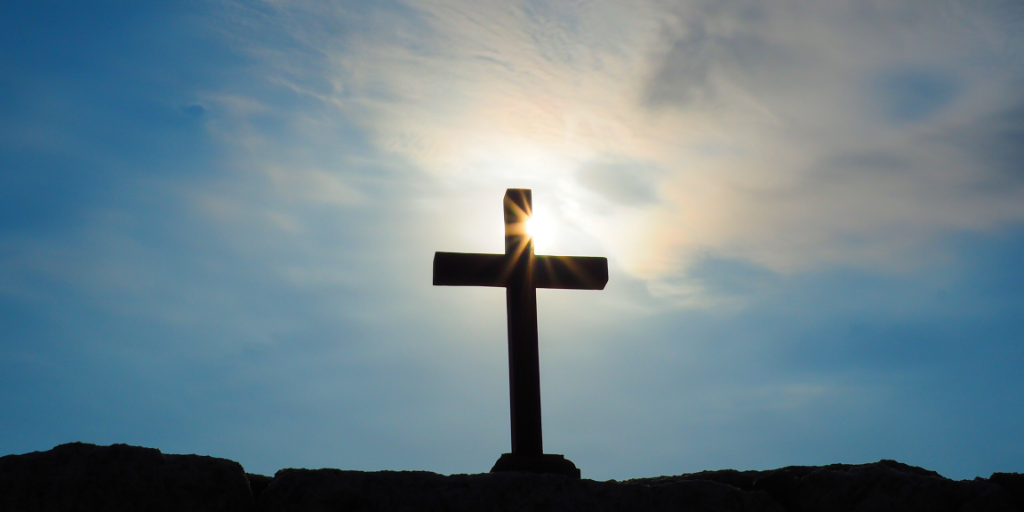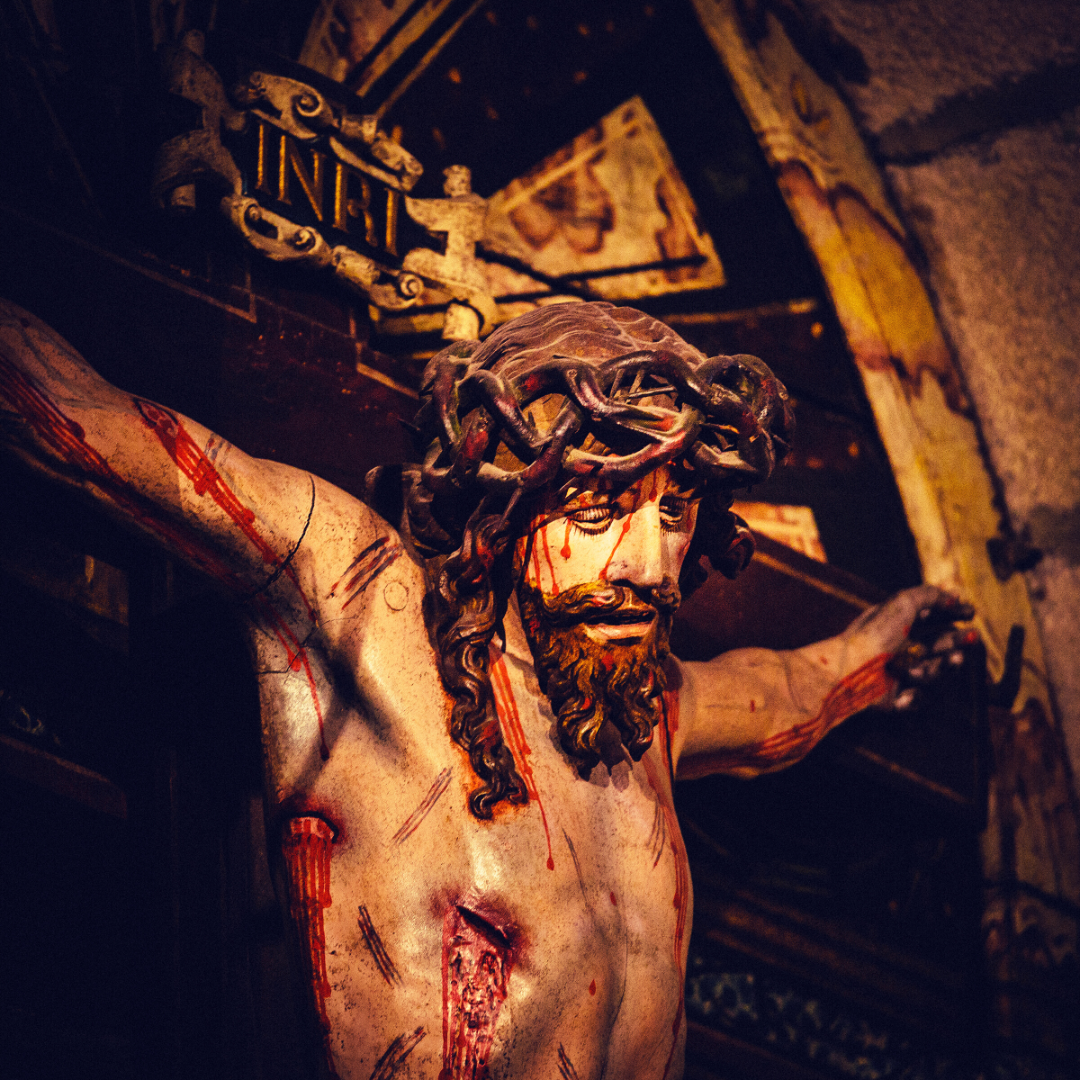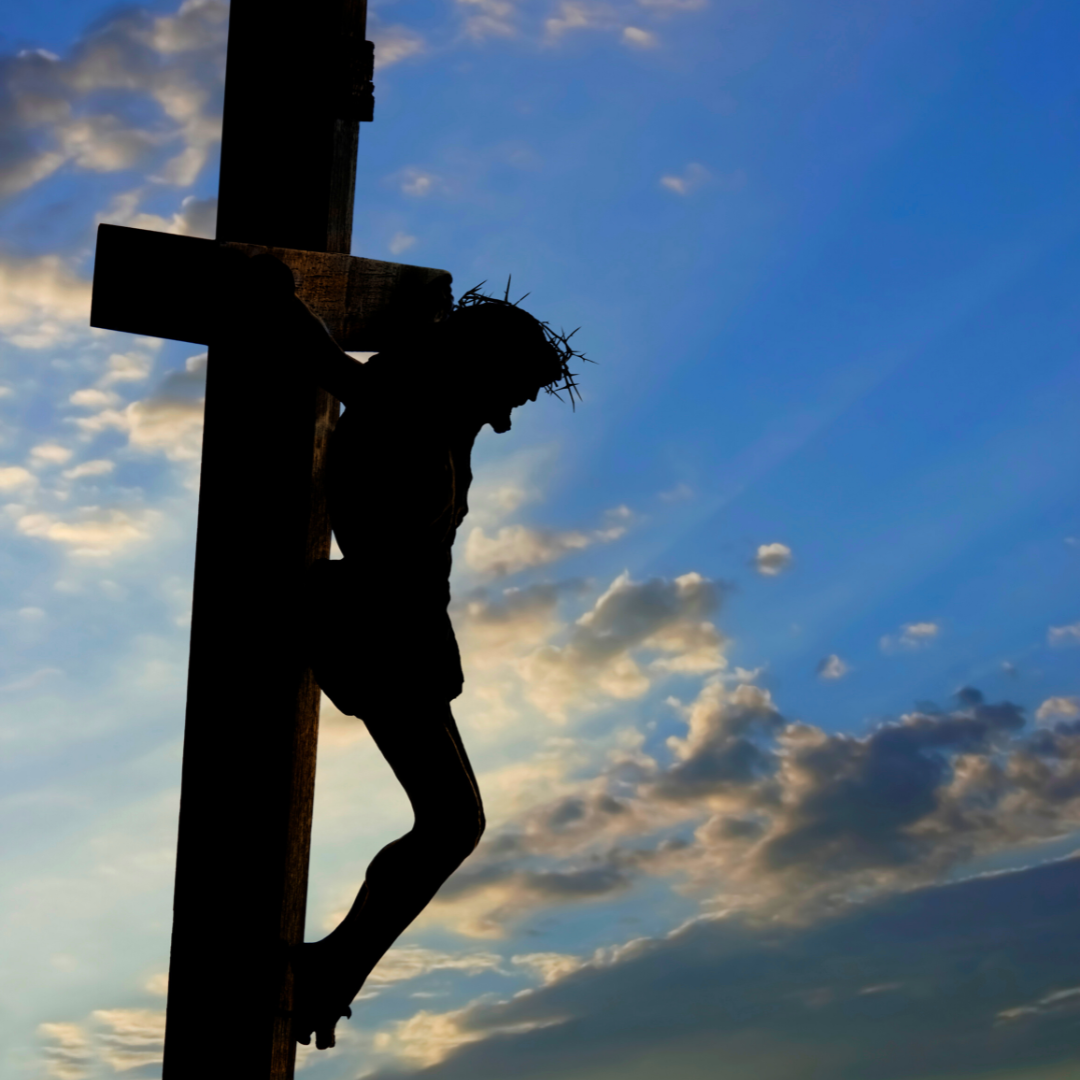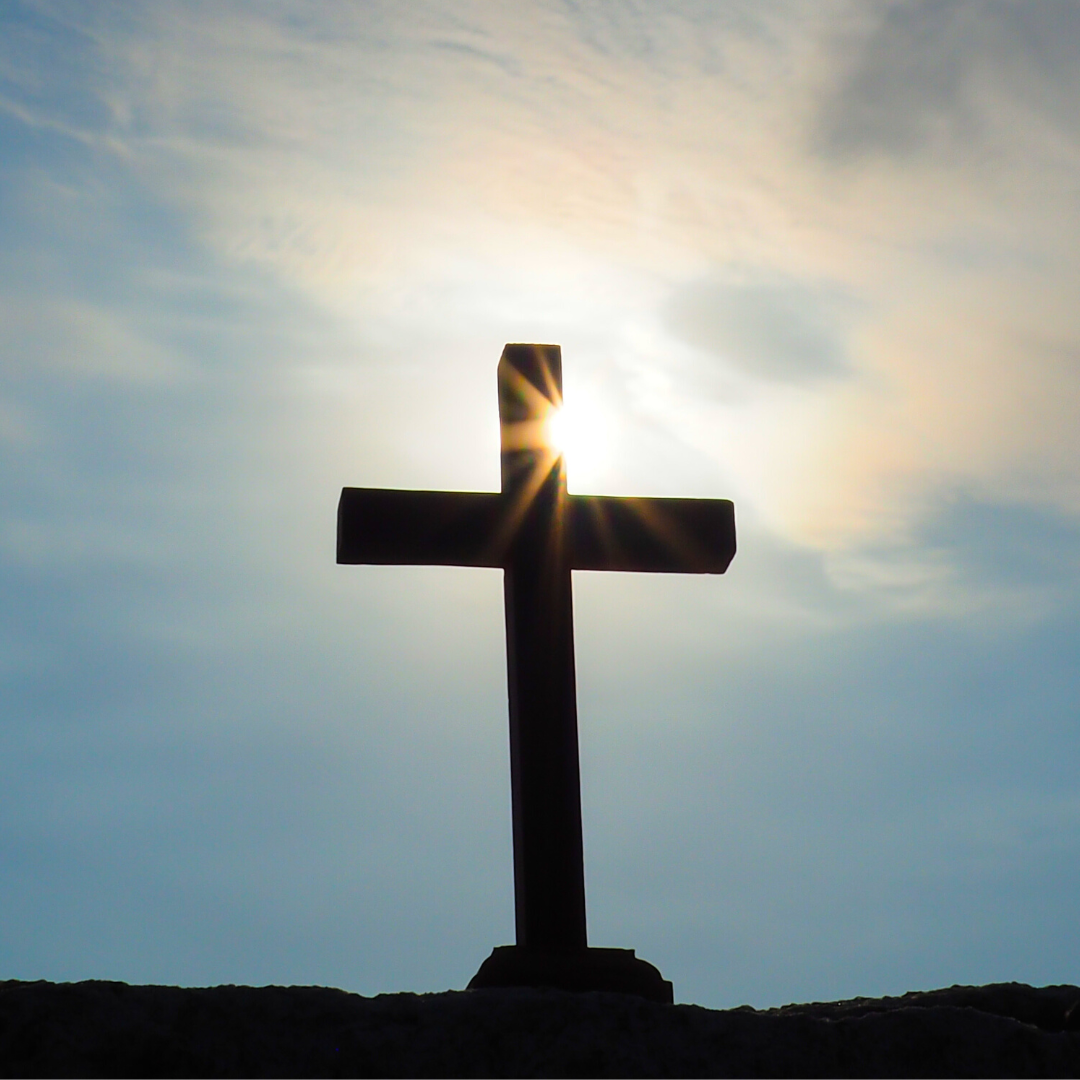
Jane Korvemaker explores how the One Ring, like the Cross, is a symbol not only of suffering, but also victory.
In just over a week we’ll celebrate a Feast of one of the most unlikely events in history. Perhaps not even an event in itself, but a symbol of the event: the cross. Next week is the Feast of the Exaltation of the Cross. But isn’t it like glorifying the One Ring from the Lord of the Rings?
Yet as Christians, we exalt the cross. How weird. And even … grotesque?
As a symbol of that which meant death—gruesome agonizing death—we take the symbol of the Cross and mark it everywhere. We place it in churches, we wear it as jewelry, we take the holy Name of our God in three persons (the Trinity) and apply those names to our body in the shape of it (the sign of the Cross). We anoint ourselves continually with this symbol of pain and agony.

All About Perspective
The twist is that it doesn’t only symbolize death and suffering, but also victory over death and suffering. Victory over that which was a defeat for humanity. Just like the One Ring symbolized death and destruction to the world of Middle Earth, once the third age had passed it took on a new symbolism—that of triumph over evil and separation from all that is good. As Christians we take that symbolism further—for us, the Cross also means our eternal salvation.
On the Cross, Jesus became our sin and suffered death. To the people around Him, He was a disappointment. A disgrace. For how could God’s anointed one die in such a shameful way? God could never allow such shame for his Messiah. His followers were fools. We are fools. Who places such faith in any human? It is ridiculous.
Jesus died, fully and humanly, on the Cross. That is to say, He died scared, exploited, and vulnerable, as any of us would be hanging on that wood. He did not grasp at His divinity on the Cross (Philippians 2: 6-11); He did not know how things would be worked out, but He trusted his God into His death. He trusted that His faith was not misplaced and that God would be faithful to His promises. This is how Jesus died: shamed, exploited, and vulnerable, but still trusting (which is a type of knowing) in God’s faithfulness.
God did not disappoint. Jesus the Christ was raised from the dead by the power of God through the Holy Spirit on Easter morning. Therefore, dying on the Cross did not mean Jesus was a disappointment or a disgrace; His followers were not fools and neither are we. Our faith in Jesus has been revealed to be faith in our God, fully human and divine, who came to dwell with His people. He still dwells with us now.

Why We Celebrate
The Cross should be shameful. It should be a disgrace. However, the strength of God’s love added a new dimension to it: that despite what the symbol superficially represents, God has given us hope and salvation through the Cross. It no longer means just shame, suffering, and failure, but rather hope, love, and that our faith is God is never misplaced, for he is faithful.
When we place ourselves in vulnerability, when we, like a hobbit, feel insignificant in our tasks and too small to make a difference, when we accept humiliation on behalf of Christ—we are not weak; we are strong. We are strong because it is only God who can take immense weakness and completely change it. Only God can take our shame and suffering and bring His glory out of it. Only God can take the Cross and bring eternal salvation out of it.
Next week is the feast of the Exaltation of the Cross. On that day, we celebrate our weakness made strong through Christ because Christ has truly risen. The Cross and all it represented has, through the power of God’s love, been destroyed. The One Ring has indeed been felled.
Do you find it challenging that we exalt the cross?

Copyright 2022 Jane Korvemaker
Images: Canva
About the Author

Jane Korvemaker
Jane Korvemaker loves food, family, wine, and God (perhaps not in that order). She holds a Certificate in Culinary Arts, which pairs perfectly with her Bachelor in Theology. A former Coordinator of Youth Ministry, she writes from the beautiful and cold province of Saskatchewan, Canada. She works from home and takes care of her three very hard-working children. Jane regularly blogs at AJK2.ca.


.png?width=1806&height=731&name=CatholicMom_hcfm_logo1_pos_871c_2728c%20(002).png)
Comments